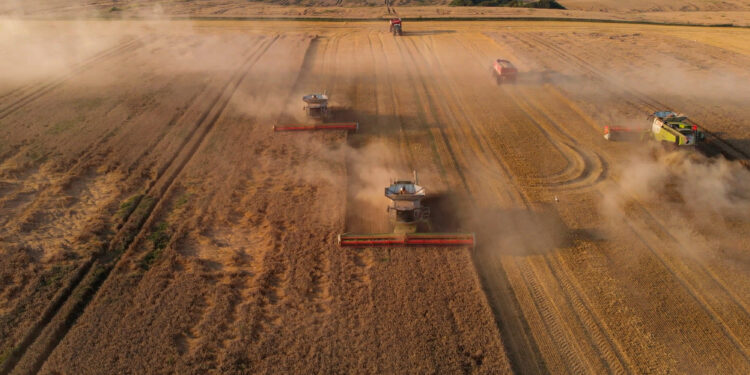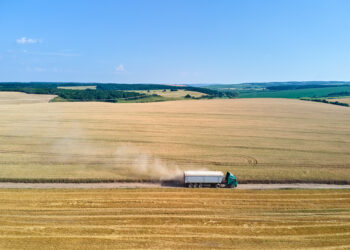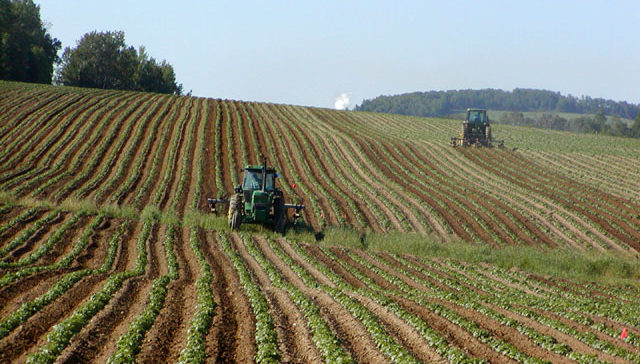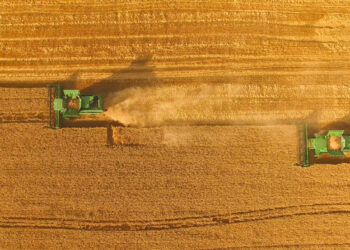Brussels – It was a formality, but after the roller coaster between March 20 and March 27, as necessary as ever not to burden Ukraine economically and agriculturally, The co-legislators of the EU Parliament and Council have found a new agreement on the extension of the autonomous trade measures (ATM) for Kyiv, and with the first green light arrived from each of the two institutions between yesterday evening (April 9) and this afternoon (April 10), the way is cleared for the extension of the stop to duties on food imports from Ukraine until June 5, 2025, under the new lines drawn by the amended mandate of the 27 EU governments.
The provisional understanding between the two institutions reached on March 20 had found opposition from France, Poland, and Hungary on two points: the extension to the whole of 2021 of the reference period for triggering the “emergency brakes” in the event of market disruptions in the Union (or just one of its members) and the inclusion of wheat in the list of products that are to be considered precisely for measures to protect European farmers. After allowing time for the 27 EU leaders to discuss the issue at the March 21-22 European Council, the Permanent Representatives Committee (COREPER) meeting scheduled for March 25 had been postponed faced by the risk of a blocking minority (which would have been supported by other countries such as Italy). This led to the compromise solution of the Belgian rotating presidency, which maintained the exclusion of wheat from the list but opened to the partial extension of the reference period from July 1, 2021, until December 31, 2023. A solution that found the consensus of the vast majority of member states, except for Slovakia and Hungary.
Having found an understanding among the member states, the road immediately seemed to be downhill since the starting negotiating position of the MEPs was even more uncompromising in favour of protecting the European agri-food market (with the inclusion of wheat and other grains in the list for “emergency brakes”). The proof was seen at yesterday’s meeting between negotiators from the two institutions, where a new agreement on the same lines drawn on March 27 by the EU governments was reached rather quickly. Very quickly came the green light from the ambassadors meeting in COREPER, and this afternoon the European Parliament’s International Trade Committee (INTA) gave the green light with 26 votes in favour, eight against, and no abstentions. The text will now go through the vote of the plenary session of the EU Parliament on April 24 before finally landing on the council’s table for final approval and publication in the Official Journal of the EU with a view to the entry into force of the Regulation from June 6.
What the agreement on the extension to the Ukraine duty stop provides
After the green light from the plenary of the EU Parliament and the 27 EU ministers, the renewed Regulation will apply from June 6; it will extend until June 5, 2025, the suspension of duties on Ukrainian exports to the Union but with an obligation for the commission to take action within 14 days (no longer 21) to activate automatic safeguards in the event of market disruptions. The existing “emergency brake” on “particularly sensitive” agricultural products (i.e., poultry, eggs, and sugar) is strengthened, taking into account “any negative impact on the market of one or more member states” and not just the EU market as a whole. Yes, the list of products that can trigger “emergency brakes” is extended to four others (oats, corn, semolina, and honey), but only the commission’s commitment to strengthen monitoring of imports of wheat and other cereals (not the inclusion in the list) remains as understood. More precisely, the EU executive is to provide a declaration for strengthened monitoring of the impacts of these products. For the activation of the “emergency brakes”, the reference period is now from July 1, 2021, to December 31, 2023, and this means that the European Commission will be obliged to reintroduce tariff quotas only if imports of poultry, eggs, sugar, oats, corn, semolina, and honey exceed the average volumes of the last two and a half years.
Regarding EU imports from Ukraine, sources in Brussels report some figures that may give some insight into the importance of the measure to support Kyiv economically. All in all, autonomous trade measures for Ukraine are worth €2.15 billion, and a reduction of about €240 million was planned with the initial commission proposal. The reduction then reached €30 million with the amended and approved text, settling the new value of trade measures at €1.82 billion: it would have dropped to €950 million if all the EU Parliament’s amendments had been adopted (-1.2 billion). Other sources in Brussels highlight how the partially extended reference period may impact the possibility of triggering European market safeguard mechanisms. For poultry, in 2021, the EU imported 76 thousand tons from Ukraine and 173 thousand in 2023. For sugar 18 thousand in 2021 and 496 thousand in 2023, for barley 50 thousand in 2021 and 660 thousand in 2023, for wheat 288 thousand in 2021 and 6.1 million in 2023, and for corn 7.4 million in 2021 and 12.9 in 2023.
English version by the Translation Service of Withub









